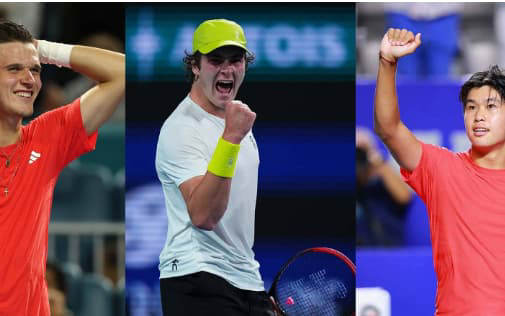The glitz and competitive fervor of professional tennis often obscure the brutal physical demands placed upon its athletes. For rising Czech talent Jakub Mensik, the reality of a grueling season recently culminated in a reluctant withdrawal from the Beijing quarterfinals, a decision he has now elaborated upon with candor and insight.
The Unforgiving Pace of the Tour
Mensik, a promising figure quickly establishing his presence on the ATP circuit, revealed that a constellation of health issues, particularly a persistent knee problem, directly forced his hand in Beijing. However, this was not merely an isolated ailment; his body was, in his own words, simply “not coping” with the relentless pace of the professional season. This observation is less a complaint and more a technical assessment of a body pushed beyond its physiological limits, signaling the profound impact of cumulative stress.
The transition from the demanding `American swing` tournaments directly into the high-stakes team competitions of the Davis Cup and the Laver Cup proved to be a bridge too far. For a young athlete still acclimatizing to the rigorous, globetrotting nature of the senior tour, such a packed itinerary is less a rite of passage and more a direct path to physical overload. One might almost detect a wry acknowledgement in his admission: “With such a packed season, it was predictable, I probably overloaded myself with matches.” Predictable, indeed, for anyone observing the modern tennis calendar, where the pursuit of ranking points and prize money often comes at a steep physical cost.
Beyond the Baseline: Understanding Player Welfare
Mensik`s experience serves as a stark reminder that professional tennis is not solely a game of skill and strategy; it`s an endurance test where the human body is the ultimate, and often most vulnerable, piece of equipment. The sheer volume of matches, coupled with constant travel across time zones and continents, creates a cumulative fatigue that can manifest in various forms, from acute musculoskeletal injuries to general systemic exhaustion. His specific knee issue, while localized, is highly likely a symptom of this broader physical taxation, indicating a systemic breakdown rather than an isolated incident.
This situation naturally prompts a wider reflection on player welfare within the ATP structure. While the tour commendably strives to offer abundant playing opportunities, the sheer density of the schedule often leaves minimal room for adequate physical and mental recovery, particularly for players like Mensik who are striving vigorously to climb the rankings and gain invaluable experience at every available event. It is a delicate operational balance: participating in more tournaments to improve and earn, versus prioritizing rest to prevent physical breakdown and ensure career longevity.
Eyes on Shanghai: A Glimmer of Hope
Despite the recent setback, Mensik maintains a remarkably optimistic outlook. His decision to withdraw from Beijing was a tactical retreat, a necessary pause to regroup and rejuvenate his physical condition. He expresses measured confidence that this brief recovery period will enable him to “perform at full power” at the upcoming Shanghai Masters. This display of resilience is a hallmark of top-tier athletes, demonstrating a deep understanding that sometimes, the most strategic move for long-term success is to take a calculated step back.
His expressed determination to “maximally restore forces to brightly conclude the remaining part of the year” profoundly underscores his ambition and commitment. For Mensik, Beijing was clearly a learning experience, not a defeat. It served as a clear, undeniable signal from his body that even the most promising talents must heed the critical call for rest and recuperation. His sights are now firmly set on Shanghai, where he aims to transform a moment of prudent withdrawal into a powerful springboard for a strong finish to his season, proving that sometimes, the smart choice, however difficult, is ultimately the most effective one.

